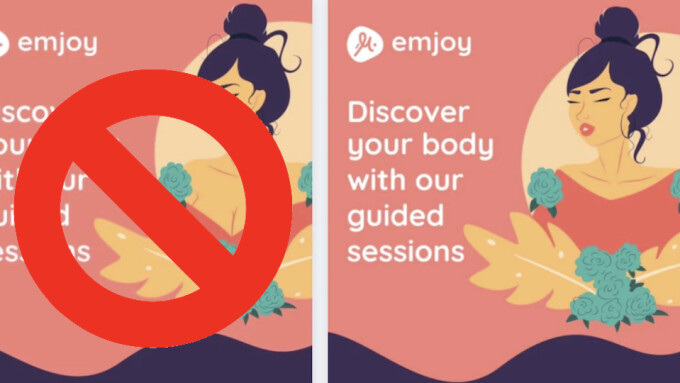MENLO PARK, Calif. — According to Emjoy, a sexual wellbeing audio app for women, Facebook repeatedly frustrated their attempts to submit illustrated ads, claiming ordinary digital art images were “sexually provocative or overly suggestive.”
In a report published today by Samantha Cole for Vice’s tech vertical Motherboard, Emjoy provided examples of art that Facebook’s ad sales team and moderators censored, including “illustrations of women in shirts that showed some cleavage, women sitting facing away so that their bare backs were exposed (but the buttocks were covered by flowers) and a woman in shorts with one leg covered by her thigh.”
“To any ordinary person, the illustrations themselves aren't remotely sexual, but to Facebook, they crossed a line,” wrote Cole.
Cole referred to staunchly sex-negative policies and practices at Facebook — and its Instagram subsidiary — as “so well-documented and pervasive at this point, it's almost a joke. It’s also confusing.”
Since Facebook's approach to human sexuality can often range from hostile to irrational to arbitrary, Emjoy’s CEO and co-founder Andrea Oliver found herself baffled by the process.
“Depending on the content, we found that with some designs every version that we edited would come back with a rejection,” she told Motherboard, “despite our efforts to review each design to establish what was being flagged as adult content.”
“For some, we only had to make a small change for them to be approved, but others we edited several times with every iteration being rejected,” Oliver added.
Facebook's Double Standard
The Emjoy CEO also said that “many [other] companies within the sexual wellness and sextech space have had similar issues, which is a problem for customer acquisition.”
Facebook has repeatedly stated that the vast majority of things concerning sex — even lawful and among consenting adults — “has no place on their platforms.”
The company makes a glaring exception however for anti-sex organizations and lobbies, including religious propagandists waging the current War on Porn.
This double standard results in sex-negative positions, attitudes and propaganda — such as campaigns stigmatizing sex workers or conflating all adult content with illegal content or “human trafficking“ — being radically over-platformed on Facebook and Instagram, while sex workers and those attempting to accurately report on these issues are regularly shadowbanned, censored or deleted.
To read Motherboard’s “Facebook’s Ad Policies Banned Cartoon Cleavage and Naked Backs,” visit Vice.








